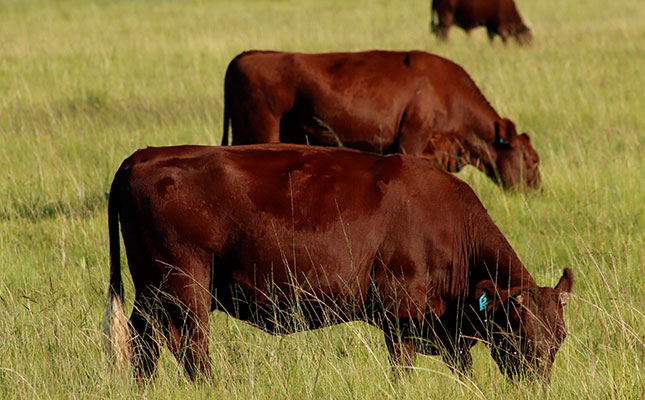
Photo: Wayne Southwood
The Sussex Cattle Breeders’ Society of South Africa celebrated its centenary on Wednesday, 6 May.
However, due to the coronavirus disease (COVID-19) pandemic, the centenary celebrations have been postponed to April 2021.
The programme will include the Sussex National Championship to be held in Bloemfontein, among other events.
“Although the celebrations will happen in 2021, the centennial events will be marketed as ‘Sussex 2020’,” according to Ika van Niekerk, coordinator of the centenary celebrations.
Sussex cattle were first imported into South Africa between 1903 and 1909, and the society was formed a few years later.
The breed can now also be found in other countries in the region such as Botswana and Namibia.
“Beef cattle producers soon realised that although the breed excelled as a pure breed, it did extremely well in crossbreeding with the indigenous Afrikaner cattle. In subsequent decades, commercial producers increasingly depended on the Sussex to improve their beef herds,” Van Niekerk said.
One of highlights for the Sussex breed in South Africa has been the introduction of polled genetics.
About 40 years ago, breeders in the UK started developing polled genetic lines. Polled breeding material was subsequently exported to Australia.
Fifteen years ago, stud breeders in South Africa imported the polled breeding material from Western Australia, and more recently semen from two UK polled bulls.
Women had also played an important role in the society in the past. During WWII, many members of the society’s executive committee were on active service, and the wives of the council members had to take over the positions of their husbands in the society.










